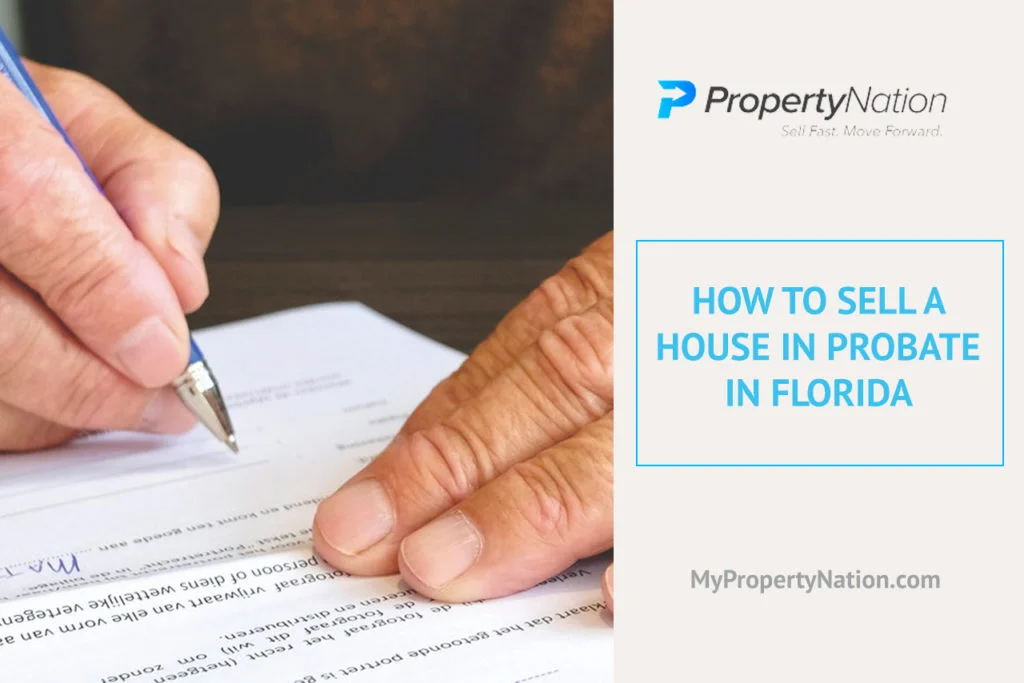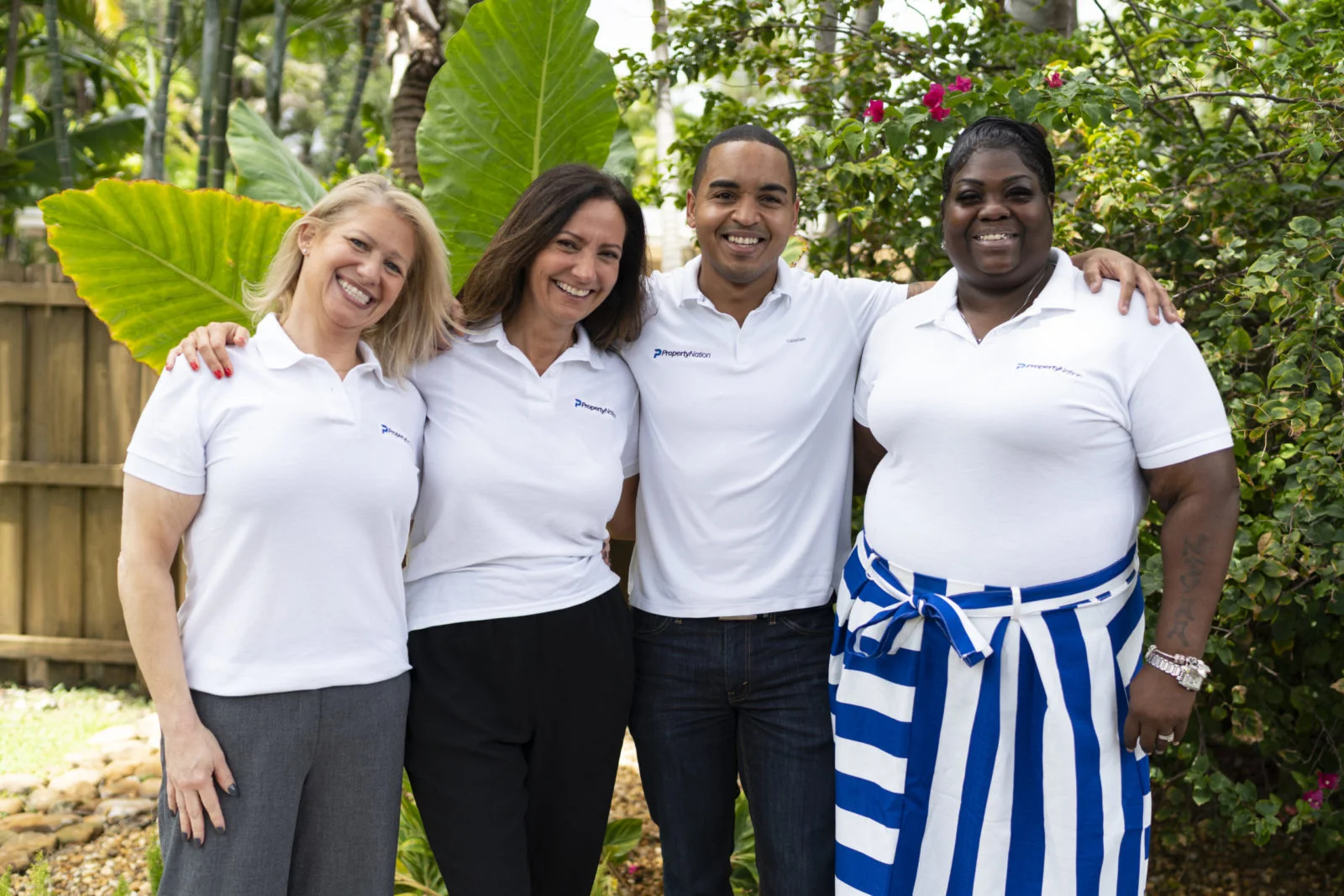Losing someone that you really loved is not easy. The process becomes even more challenging if you have been named as the person who will execute the will of the deceased. If you are not familiar with the process of selling a house in probate (don’t feel bad, most people are not), you will have a hard time trying to understand the process of selling probate property.
In this post
Contents
- What is Probate?
- What If There is No Will?
- How Long Does the Probate Process Take?
- What if the House Has a Mortgage?
- Is the Home Protected Under Homestead Exemption?
- How to Sell a House in Probate
- 1. Appointment of Executor
- 2. Working with an Attorney
- 3. Getting the House Appraised
- 4. Time to Sell Your Inherited House
- 5. Getting an Offer
- 6. The Closing
- 7. Taxes and Fees
First, What Exactly is Probate?
Probate is a legal term that refers to the process of distributing property or an estate of a deceased person according to his/her will. To avoid conflict and future legal action. The estate needs to be executed according to the will of the deceased. For an asset to be transferred from the deceased to the person they chose, the will must actually go through the probate process.
This process will not only ensure that the estate is distributed according to the deceased will but will also ensure that all debts and taxes are settled before the estate is transferred to those named in the will. The will is usually comprised of an executor, and in most cases, is usually a trusted family member or friend. The executor will ensure that the deceased will is executed according to his or her wish.
What If There is No Will?
In many cases, if there is no will, or if some of the estate’s assets have no designated beneficiary, there is a court-supervised process that distributes the assets. This same probate process also allows a challenging of the will, where the court will decide who the beneficiary will be.
How Long Does the Probate Process Take?
According to the American Bar Association, the probate process can take 6-9 months after the probate case is opened. Of course, this can vary depending on various factors like disputes of the will.
What if the House Has a Mortgage?
It’s important to know if the home in question has a mortgage standing. If so you will need to continue to make payments on the mortgage during the process to avoid the home going into foreclosure. The bank wants to still be paid for the home or else they will foreclose, complicating the process even more.
If the home has no mortgage, then the process is a lot easier and no payments on a mortgage are required.
Is the Home Protected Under Homestead Exemption?
Homestead property is defined as the home and attached land of an individual or family serving as the primary residence. The Florida courts also include Condos, mobile homes, and manufactured homes to be protected under homestead.
Homestead property is legally protected from creditors upon the death of the deceased if they were a permanent Florida resident and the home was their primary residence.
In simple terms, a creditor like a credit card company that is owed money, cannot force the sale of the house to recover their money. This also means that even if the deceased invested millions of dollars into their property, this would all be protected under the constitution legally.
Important note: To keep this exemption, the homestead must be passed to the person or people who are heirs to the inherited property by notifying the court through a specific petition to keep the homestead intact. This is where an attorney knowledgeable in probate is important as the home could lose its homestead exemption. Basically, if you don’t ask the court, you don’t get the exemption. We work with attorneys who are knowledgeable about this entire process, contact us if you have any questions and want assistance.
So what is NOT considered under homestead protection?
The following is a list of properties that are considered unprotected by Homestead law.
- Not owned by a real person – If the home is owned by a corporation, trust, LLC or partnership it will not qualify. Only a home owned by what is considered “natural persons” and a living trust can be considered homestead property.
- Future residence – If the property was bought as a future residence, it may not be considered protected unless the home was a primary residence.
- Second home – If the house was used as a second home or vacation home, it may not be considered a Florida Homestead either.
Types of Creditors That Can Bypass Homestead Exemption:
- State and County Taxes – The State of Florida itself and its counties or municipalities are allowed to collect past due property taxes. Sorry, no avoiding the tax man.
- Mortgages – As mentioned previously, the mortgage company and any parties to whom the property was specifically pledged as credit.
- Co-Owner’s Creditors – If someone else owns part of the homestead and does not live on the property, their creditor looking to get paid, can potentially force the sale of the property.
- Contracting Companies – If a company performed any type of work to improve or repair the home and placed a lien on the property, they may also be eligible.
- Condo and Homeowner Associations – If a condo association has placed a lien on the property predating the homestead they may also be able to collect what they are owed from the homestead.
Legal disclaimer: As with anything legal it is always recommended to get proper legal advice. You can also read more about Florida Homestead Exemptions or contact us for more personal assistance.
How to Sell a House in Probate
Now that we’ve got the important stuff out the way, let’s dive into the specific process of selling a house in probate.
There are many reasons why people decide to sell a house that they have inherited. To some people, they sell because they have a financial problem, some prefer not to keep the house due to personal reasons, while others want to avoid high maintenance costs or taxes that the house demands.
Regardless of the reason, one thing that you need to know is that selling a house in probate can be more complicated than selling a normal house. However, that does not mean that it is not possible to sell a probate house.
If you inherit a house in a will, you will need to go to probate court to be able to sell the home you inherited. In many cases, to clear the legal title of the home and be able to sell it, it will take 4-5 months after the probate proceedings. If you inherited the house by deed, selling is much easier and does not require going through the probate process in Florida.
Let’s go over how to sell a house in probate in Florida:
The probate process can be fast or it can be really slow, it all depends on the situation. If the previous owner has been deceased for two or more years, the whole procedure can take just as little as a week to complete. If the owner has passed away recently, and you want to sell the house, the probate process could take as long as 6 months since the records of the owner will need to be fixed first.
Important Note: Whether or not probate will be necessary, Florida law requires that anyone who has possession of a will must file it with the local circuit court within 10 days of learning of the death. If a probate court proceeding is necessary, the court will determine whether or not the will is valid. (Source)
1. Appointment of an Executor and Dealing with Multiple Inheritors
The first step in the process of selling probate house is appointing an executor. If the deceased had already appointed an executor, then that particular person will lead house selling process. If not, then the court will appoint a close relative to act as estate administrator.
If you are the executor then you can continue to the next step in the process.
The court must determine that the will is legal and valid. Therefore the assets of the deceased are frozen to prevent anyone from taking something that they didn’t actually inherit. So if you inherited a home in Florida you will need to attend these court probate proceedings to get your inherited house through the necessary proper procedures.
Florida has its own specific laws and court processes on probate which you can read here.
Multiple siblings or inheritors
In the case of inheriting a house with multiple siblings or parties, there may be disputes and issues. It is common for siblings especially to fight over what should be split and who should do what.
This can turn into a nightmare quickly and has broken apart many families.
It is common where one sibling will be appointed the manager of the property and deal with showing the home to potential buyers, dealing with the lawyers, and more. Many times the sibling in charge will request to be compensated fairly for taking on the extra workload.
In some cases, if all inheritors are too busy or live out of state from the property, it is often common for a property manager to be hired to manage the process and deal with the necessary issues.
2. Work With an Attorney that Specializes in Probate
The probate process can be very complex, and there are specific laws and timeframes that must be considered when trying to sell a home in probate. We recommend having an attorney that knows probate in and out and is able to help you through the process.
Since our company buys homes in probate on a daily basis, we work with very experienced attorneys that can help facilitate the entire process for you.
3. Get the House Appraised
A house is a big investment and as a result, nobody wants to sell it at loss. Once the court has granted you probate, the first thing that you need to do is to hire a certified appraiser to evaluate the property to determine its real value. This way, you will get the real value of the property and the price that you need to set the buying price.
Hiring an appraiser is as simple as asking around for referrals from friends and family or simply searching online for an appraisal company in your area.
If you work with a home buying company like ours we can provide this for you at no cost to you.
4. Time to Sell Your Inherited House
Depending on your situation if you choose to sell your inherited house there are a few options for selling.
Selling with a Real Estate Agent – Selling your inherited house with a real estate agent is a great option if the home is in pristine condition and requires little to no repairs or clean up. An agent can list the property and market it for you. This convenience does come with a cost as the agent will be paid 3-6% commission for helping you sell the home, so if you or your the people you inherited the house with want to split more and reduce the costs of the sale, you may not want to use an agent.
Selling on your own – You also have the option of marketing and selling the property on your own. Keep in mind this only makes sense if you know what you’re doing and can navigate the probate and sell house fast fort lauderdale process on your own. This also works best if you have the time to market and show the property yourself. If you go this route please be cautious of anyone coercing you into signing specific paperwork or legal contracts that could end up costing you in the long run.
Selling to a Real Estate Investment Company Like Property Nation – We may be biased, but this is probably one of the best options to use when selling your probate house. This option is recommended for those who want the benefits of selling their probate house fast and at a good price without having to do any repairs or pay commissions.
Unlike regular buyers who consider many factors such as the overall condition of the house, we as investors are more interested in the property itself, not how it looks.
5. Getting an Offer on Your Property
The next step in the process is to get an offer.
If you work with an agent or sell on your own, your buyers will submit an offer for the inherited property.
When you contact us for an offer, we will evaluate your house and give you an offer immediately. We will not wait days to give you an offer or try to low-ball you as is usually the case with regular buyers.
When you sell to traditional buyers or through an agent keep in mind you may need to do repairs first to the property to make it move-in ready.
If you choose to go the route of selling to an investment company like us at Property Nation we will purchase the property regardless of its current condition. This means that if the house has a mortgage or need repair, we will purchase the property and make necessary changes that the house needs later and work with the mortgage company as needed to purchase the home.
6. The Closing
If you accept the offer, then the offer must be submitted to the court. The estate executor through the probate attorney will submit a written document to confirm the acceptance of the sale. If all parties involved in the process agree, then the court will set a date to finalize the process.
All heirs of the deceased who will benefit from the sale proceeds will be notified. They will then have 15 days in to review the notice given and file any objections. If all heirs agree, then the sale will proceed without going through a court hearing.
If you sell to an all-cash buyer like us here at Property Nation, you will also not be forced to wait months before everyone is paid. You will get your money immediately after closing because we pay cash.
When you sell a house in probate via the traditional route through an agent, and the end buyer has to get approved by a loan, you may need to wait much longer before the closing takes place and you get paid.
Once the sale of the house is completed, the proceeds of the sale will be split according to the will of the deceased or finalized amounts agreed upon prior to the sale.
7. Taxes and other fees
One last thing to consider when selling a house in probate is taxes after the sale.
If you inherited the house with one or more people things can get a bit tricky fast. Especially if heirs are not getting along for whatever reasons.
All of the co-inheritors are equally responsible for the liabilities, income tax, debts and mortgage that need to be paid off under Florida law. So whether it is property taxes, insurance, management fees, association fees, utilities, bills, or other fees that have accumulated on the property during the probate process, they must all be split equally among the heirs of the property.
These taxes and fees must be paid off prior to the sale, but there are other taxes involved in the sale.
Whenever a property is sold in any situation, an income or capital gains tax must be paid. Essentially this is the gains earned from the original price the house was purchased for to what it was sold for now.
However, luckily with a probate sell, there is something called “step up in basis“. This means that the basis price is the price of the house when you inherited it, not the original price of the deceased purchased it. Therefore you would only pay the “gains” from the book price and the price sold.
Selling Your Inherited House Doesn’t Have to Be Hard
Overall, the entire probate process does not have to be a difficult one. We hate to see families split up over the death of a loved one and the stress that arises when selling a house in probate.
If you are looking to get help with the process and also have us make an offer on your inherited house, give us a call. We work with homeowners, siblings, and families every day that have inherited a property and are looking to be relieved of the stress and complications involved.
We can make the entire process easier for you and provide the resources you need to sell a house in probate faster, and with less effort.




